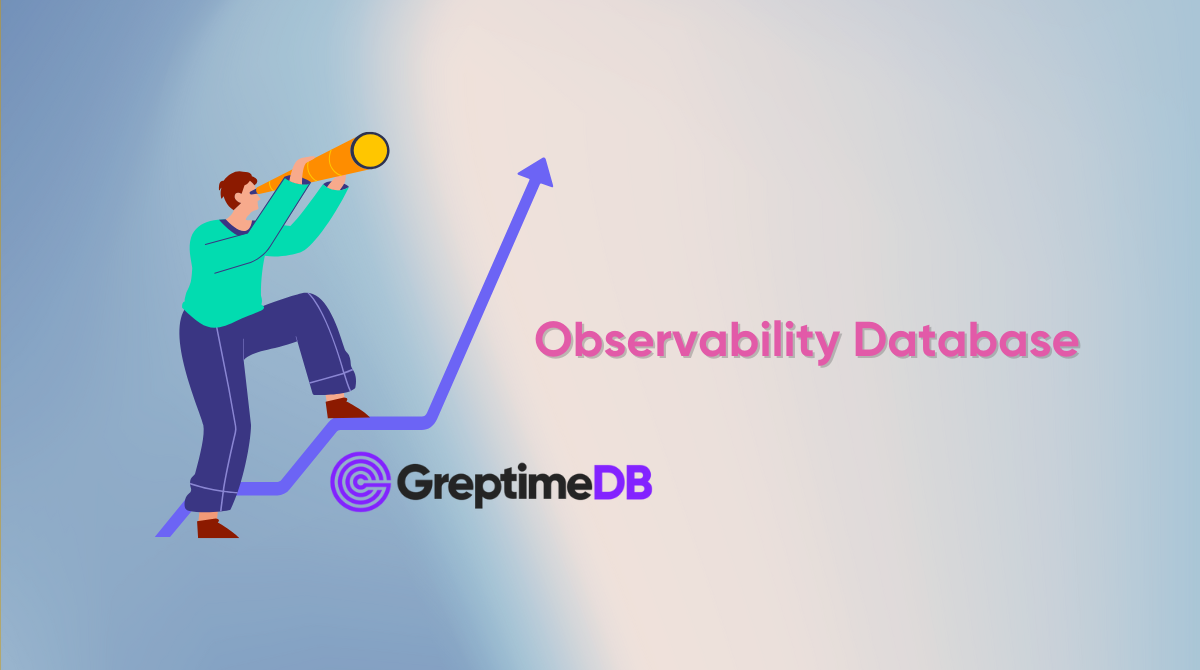Long-Term Prometheus Metrics Storage with GreptimeDB

Introduction
Prometheus is the de-facto standard for collecting real-time metrics in cloud-native environments, yet its embedded TSDB is purposely tuned for short retention and modest cardinality. When teams need to keep months or years of data—for example, to train anomaly-detection models or meet compliance targets—administrators are forced to bolt on complex, multi-component stacks such as Thanos or Cortex. A recent migration story from DeepXplore highlights the operational burden: “installation and maintenance of Thanos clusters is often complex, time-consuming, and requires significant overhead”. GreptimeDB, an open-source, Rust-based high-performance database, eliminates that overhead by acting as a drop-in, cost-effective Prometheus long-term storage solution.
Why Prometheus Struggles at Scale
- Short retention: the built-in Prometheus TSDB aggressively compacts blocks for a default 15-day window, making month-long analytics impractical.
- High cardinality: labels such as pod UID or tenant ID can explode into millions of series, causing memory pressure and query slowdowns.
- Operational sprawl: external systems like object stores, Querier/Store-Gateway tiers, and sidecar uploaders add failure domains and monitoring toil.
GreptimeDB’s Purpose-Built Design
1. Seamless ecosystem compatibility
GreptimeDB speaks the Prometheus Remote Write / Remote Read protocols and maintains > 90 % PromQL compatibility. Existing Grafana dashboards, Alertmanager rules, and service monitors continue to work after a simple endpoint switch—exactly the “breeze” described by the DeepXplore team.
2. torage & compute separation on object storage
By persisting immutable Parquet files directly to Amazon S3, GCS, or Min IO, GreptimeDB leverages media that is 3-5 × cheaper than block storage. A multi-tier cache (write-back for recent blocks, read-ahead for hot historical ranges) masks object latency and keeps P95 query time sub-second for popular dashboards.
3. High-cardinality time-series data management
Skipping and inverted indexes selectively prune 99% of data blocks during queries on large label sets such as instance=podUID. Merge modes like last_non_null deduplicate updates without rewriting whole rows, further shrinking storage cost.
4. Kubernetes-native operations
The GreptimeDB Operator provisions clusters with a single Helm command, automatically rolling out Vector sidecars that ship GreptimeDB’s own metrics and logs back into a dedicated self-monitoring instance. This unified observability platform removes the need for Elasticsearch or Loki side deployments.
Quick Start on a K8s Cluster:
helm repo add greptime https://greptimeteam.github.io/helm-charts
helm install prom-lts greptime/greptimedb-cluster \
--set monitoring.enabled=true \
--set storage.s3.bucket=prom-data \
--namespace observability
# then in Prometheus
remote_write:
- url: http://prom-lts-frontend:4001/api/v1/prom/remote/write
remote_read:
- url: http://prom-lts-frontend:4001/api/v1/prom/remote/read
No code changes, no new query language—just scalable, durable retention.Cost & Performance Impact
A 2 TB/day workload retained for 12 months requires ~90 TB of compressed Parquet in S3 and < 10 TB of SSD cache, cutting monthly storage spend from ≈ $20 k (gp3) to < $6 k while delivering faster queries than Thanos StoreGW.
Conclusion
For teams searching for a Prometheus long-term storage solution, or an “alternative to InfluxDB for time-series data,” GreptimeDB offers cloud-native observability, edge-to-cloud scalability, and real-time analytics on metrics, logs, and traces—all in one unified, cost-effective platform. By swapping a single endpoint, organizations can retire fragile Thanos stacks, lower TCO, and unlock high-cardinality insights without abandoning familiar PromQL workflows.
About Greptime
GreptimeDB is an open-source, cloud-native database purpose-built for real-time observability. Built in Rust and optimized for cloud-native environments, it provides unified storage and processing for metrics, logs, and traces—delivering sub-second insights from edge to cloud —at any scale.
GreptimeDB OSS – The open-sourced database for small to medium-scale observability and IoT use cases, ideal for personal projects or dev/test environments.
GreptimeDB Enterprise – A robust observability database with enhanced security, high availability, and enterprise-grade support.
GreptimeCloud – A fully managed, serverless DBaaS with elastic scaling and zero operational overhead. Built for teams that need speed, flexibility, and ease of use out of the box.
🚀 We’re open to contributors—get started with issues labeled good first issue and connect with our community.
